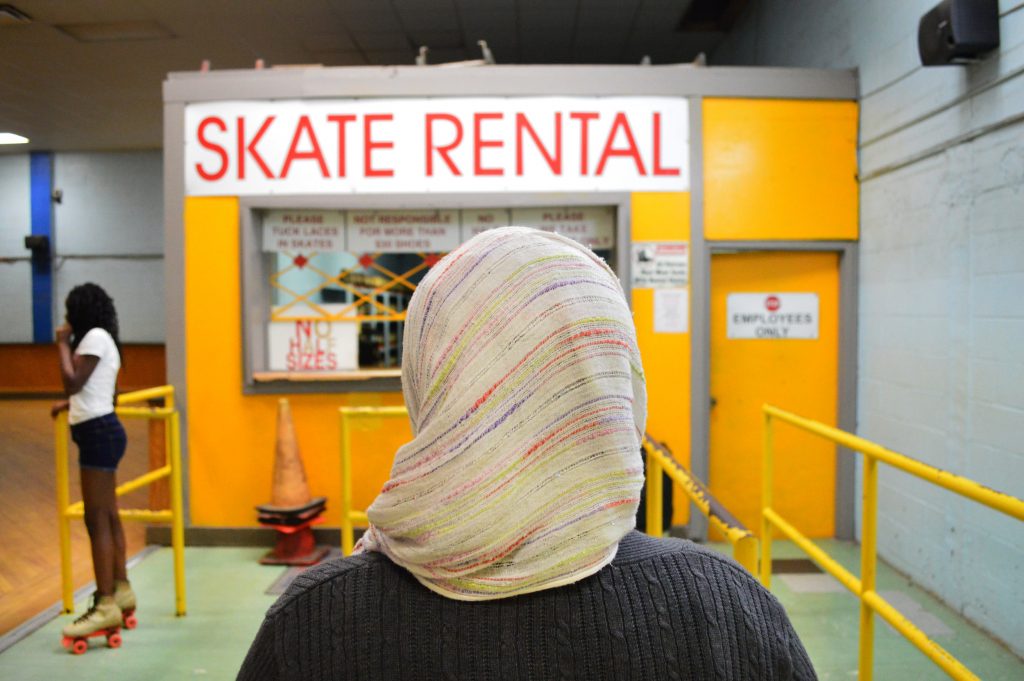“Halal Metropolis” Spotlights American Muslim Culture, Heritage in Southeast Michigan
A traveling installation highlights the past, present and future of American Muslims and their culture. Razi Jafri, curator, speaks on its origins.

Art is humanity in all of its complexities and nuances. There’s a connective power that brings together storylines, disrupts cultural gaps and shifts mindsets.
This is the thinking that went into “Halal Metropolis: Exploring Muslim Visibility in Detroit,” a traveling installation presented by the University of Michigan-Dearborn’s Center for Arab American Studies. The exhibition highlights the past, present and future of American Muslims and their culture throughout Detroit and southeast Michigan.

Through archival and contemporary photographs, sculptures, video installations, displays, interactive media and more, “Halal Metropolis” aims to build bridges with communities that may be less familiar with Muslims and Islamic culture.
“Once you see ‘Halal Metropolis,’ you can’t unsee it,” says Razi Jafri, a photographer, activist and co-curator of the exhibition series. ”Because a lot of these things we might perceive to be mundane. There’s signage, storefronts, things on menus, streetscapes. Once you start compiling it all together, you start to get an understanding [that] this is a phenomenon. This is actually something that really exists.”
Jafri, along with project partners, Osman Khan, an artist and MFA Program Director at the Penny W. Stamps School of Art and Design at the University of Michigan, and Sally Howell, historian at Michigan’s Dearborn campus, presents this body of work in collaboration with a collective of Muslim artists, as a way to engage dialogue and contemplate on the idea of Muslim visibility in modern society.
CultureShift’s Ryan Patrick Hooper spoke with Razi Jafri about “Halal Metropolis.” Click the audio player for that discussion.
“Halal Metropolis” will open tonight, Friday, June 21, at Indus Detroit at 6:00 pm. Admission is free.
